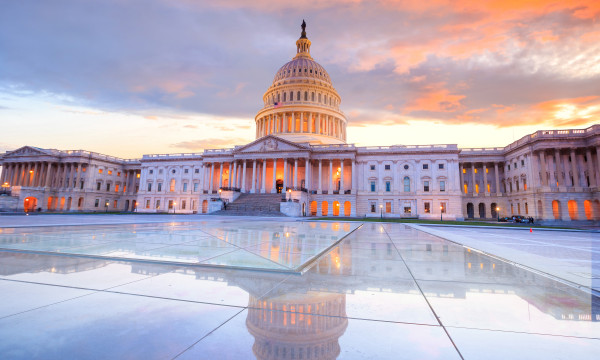CARES Act Retirement Plan Update

On March 27, 2020, President Trump signed the Coronavirus Aid, Relief, and Economic Security Act (known as the “CARES Act”) into law. The CARES Act was designed to provide economic relief to workers and businesses who have suffered financially as a result of the COVID-19 crisis. This article discusses the retirement plan portions of the CARES Act.
Coronavirus-related distributions
The CARES Act allows for a new type of distribution, known as a “coronavirus-related distribution,” from qualified plans, 403(b) plans, governmental 457(b) plans, and IRAs. A retirement plan may, but is not required to, offer coronavirus-related distributions to participants.
A coronavirus-related distribution must satisfy the following requirements. First, it cannot exceed $100,000. Second, the distribution must be made on or after January 1, 2020, and before December 31, 2020. Finally, the distribution can only be made to a participant:
- who has been diagnosed with COVID-19;
- whose spouse or dependent has been diagnosed with COVID-19; or
- who has suffered financially from the virus because he/she was quarantined, furloughed, or laid off; had work hours reduced; or was unable to work due to lack of child care
A participant can pay taxes on a coronavirus-related distribution over a three-year period and will be able to repay all or a portion of the distribution to a plan (or IRA) within three years. The distribution is exempt from the 10% early distribution penalty tax even if the participant has not attained age 59-1/2.
Coronavirus-related loans
The CARES Act also provides relief to participants through its coronavirus-related loan provisions. Like the distribution provisions discussed above, the coronavirus-related loan provisions are only available to the same group of participants who would be eligible for a coronavirus-related distribution.
An employer’s retirement plan is not required to offer participant loans in general. Furthermore, if a plan offers participant loans, it is not required to adopt the coronavirus-related loan provisions. Instead, it’s up to the employer whether to adopt one or more of the following coronavirus-related loan provisions:
- An eligible participant can receive a loan up to the lesser of 100% of his/her vested account balance or $100,000, but only if the loan is made on or before September 23, 2020. This is increased from the current limit of the lesser of 50% of a participant’s vested account balance or $50,000.
- Scheduled loan payments due from March 27, 2020, through December 31, 2020, can be extended for up to one year without causing the loan to go into default.
- The maximum five-year repayment period is extended for one year.
Waiver of 2020 required minimum distributions (RMDs)
Finally, 2020 RMDs are not required to be made from defined contribution plans, 403(b) plans, governmental 457(b) plans, or IRAs. This legislation is similar to the Worker, Retiree, and Employer Recovery Act of 2008, which allowed individuals to waive their 2009 RMDs.
Union Bank will continue to keep you updated on any other additional retirement plan-related relief that may be offered to workers and businesses. If you have any questions about how the CARES Act features can be incorporated into your plan, please contact your Union Bank Relationship Manager.
|
Learning Center articles, guides, blogs, podcasts, and videos are for informational purposes only and are not an advertisement for a product or service. The accuracy and completeness is not guaranteed and does not constitute legal or tax advice. Please consult with your own tax, legal, and financial advisors.




